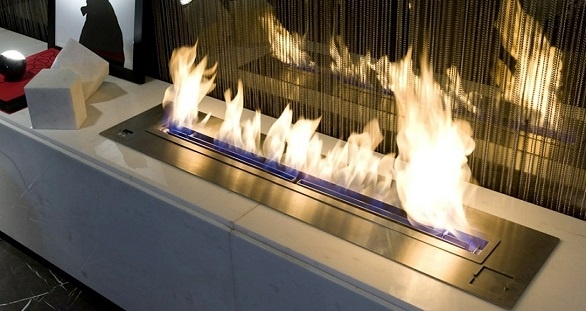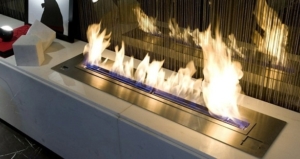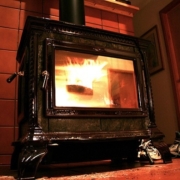Sustainable Fireplace Technology
Sustainable Fireplace Technology
Burning a fire during the winter months is a time honored tradition yet antiquated structural designs resulted in too many pollutants and unsafe particulates being released in the air. In recent years, stricter government regulations set forth by the Canadian and US governments insist that fireplaces and wood stoves be redesigned so they’re safer for the environment. Improved designs have made it safe and effective for wood to continue being used as a renewable heat source. Wood pellet stoves are also efficient heating systems and demand for pellets is surging in Europe because burning wood for energy is renewable. Two other fireplace designs that could also have a neutral impact in the environment are electric fireplaces and bioethanol fueled fireplaces.
Electric Fireplaces
Electric fireplaces boast the benefit of plug-and-play technology. They are stand-alone units. They include a mantle and generate a significant amount of heat, although not enough to heat an entire house or office building. They do, however, create the ambiance of burning wood in a fireplace, making them an easy way to heat a home or office building. However, because electric fireplaces rely on the electricity, by running one frequently, your electric usage would spike and you could expect to see a higher electric bill on your next billing cycle.
If your home or office building’s electricity is powered by a renewable resource, like solar panels, wind, biomass, hydro, or geothermal, then using electric fireplaces to heat your home or office building could be a great way to reduce your carbon footprint. The fuel required to heat that building is renewable because it would replenish and regenerate itself indefinitely. Otherwise, you’d be growing your dependence on nuclear powered power plants that depend on uranium, and uranium is not considered a renewable resource.
Bioethanol Fireplaces
Ethanol is a renewable fuel made from biomass. The main benefit of using any kind of gas powered fireplace is that they require no chimney and they’re easy to maintain. Combustion fumes are let out through a hole in the wall and those fumes have a minimal impact on air quality. There are no logs to split, ashes to bag, or chimneys to clean. Although gas fires produce more heat than bioethanol fueled fires, when bioethanol burns, the flames are more lively and have been said to “dance” more than gas powered fires. If your space to heat is small or you want the aesthetic experience of dancing flames in your fireplace, and you care about using a renewable energy to fuel your fireplace, bioethanol is worth considering.
Wood is a renewable resource and burning logs, either in a fireplace, a wood stove, or pellet form, is a time honored tradition. There are other types of renewable fuel sources used in fireplace technology to create the desired ambiance without increasing your carbon footprint, especially if your home or office building’s electricity is powered by solar panels, wind, biomass, hydro, or geothermal technology.
Resources









